The cow is holy in India and nobody is moved when one of them roams in the train station hall of Jaisalmer. We go to Jodhpur we reach late in the evening. We laid in a laid-back guesthouse among a maze of alleyways.
The close stitches of this asphalted network filter the sound pollution because only pedestrians and bicycles can slip through in some parts. Jodhpur is a quiet city. I didn't think we could use this term for an Indian town.
Jodhpur has the distinctive feature to be built around a fort overlooking the vicinity from the top of a mound, the Meherangarh fort which Kipling, in his day, described as "work of angels and giants". The winding and narrow streets lap its foothills. We pace them and step out a stairway leading to the fort.
So be the Rajasthan province; not a city that doesn't boast of possessing excessive fortifications within its close horizon.
We go though the fort entrance specially reinforced against the elephants' charges. The balconies, alcoves and main buildings got a particular attention from the local craftsmen. Outside, the inhospitable and gloomy lines of the ramparts to show the assailant he isn't very welcome and inside, the gentle bends of richly carved illuminations. Better to be from the maharaja side. Cannons occupy a few crenellations of the mighty wall and point at a hypothetical enemy. From the fortification, the vista on the blue city is splendid. Terraces on the rooftops, intricate alleyways and azure-hued walls. A soothing color which contrasts with the hostile desire of the cannons of the fortress.



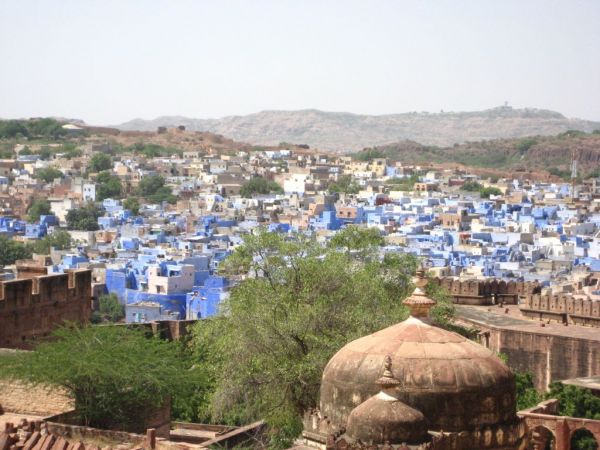




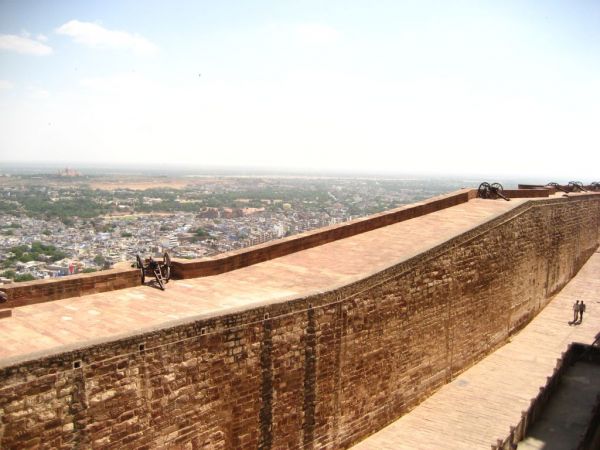











Before closing the short visit into the blue city we stop at the Jaswant Singh II memorial, benefactor of the town during the 19th century.



Keyword - train -
Wednesday 10 October 2007
The fortress of Jodhpur
By dorian on Wednesday 10 October 2007, 23:10 - RTW-India
Tuesday 18 September 2007
The mountain train towards Shimla
By dorian on Tuesday 18 September 2007, 19:08 - RTW-India
A first train drops us off at Kalka before hopping on the Himalaya Queen, a mountain train that rolls at 20 km/h and goes through 103 tunnels ; 5 hours to reach Shimla. A bequest from the former British occupier. A journey through the forest which cheers us up after this first hours spent in the Indian capital city.
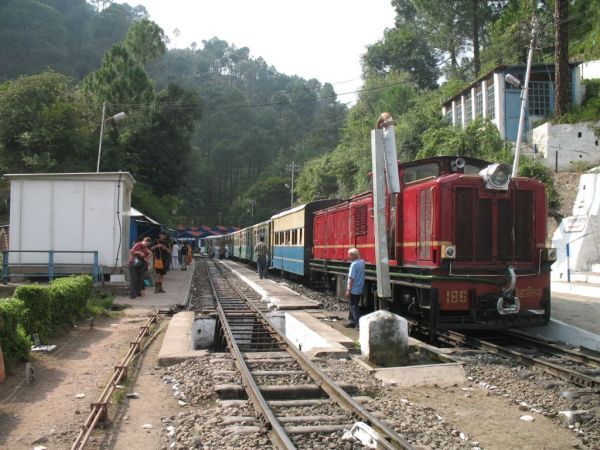
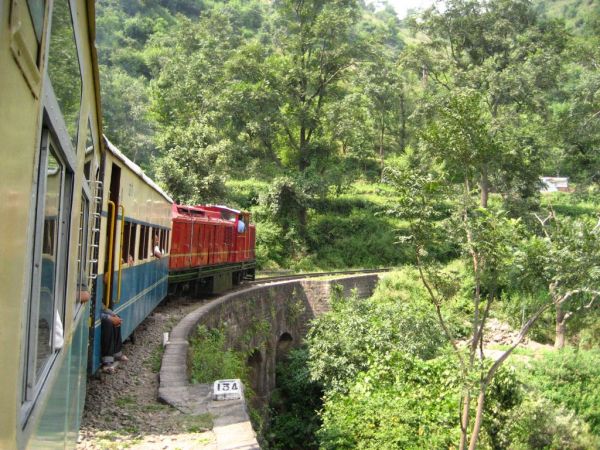
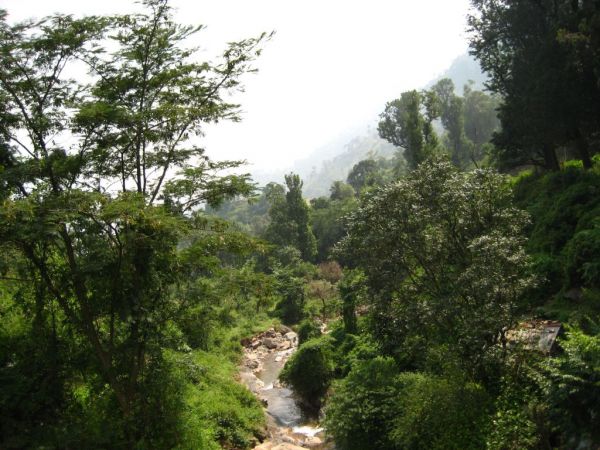
Shimla is a holidays destination for the honeymooners and rich Indians. The town seems to be built on a landslide. Steep stairs connect the thoroughfares of the city. The houses don the British colonial architecture of the 19th century. Hanging from the electric wires, climbing gutters or scaning around from the rooftops, colonies of monkeys invade the town.
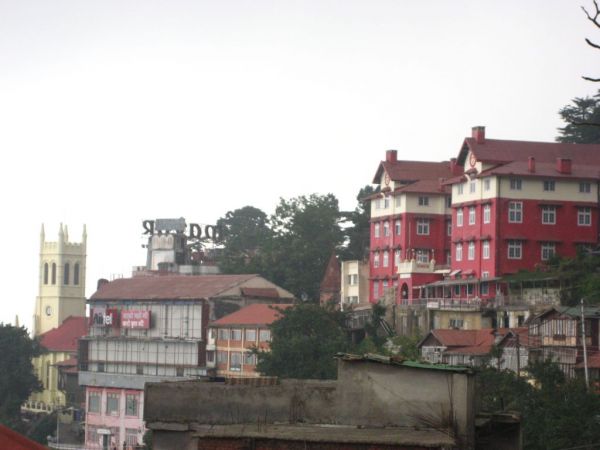
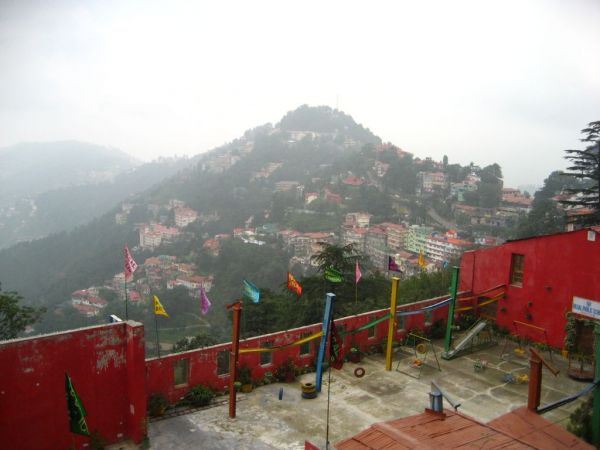


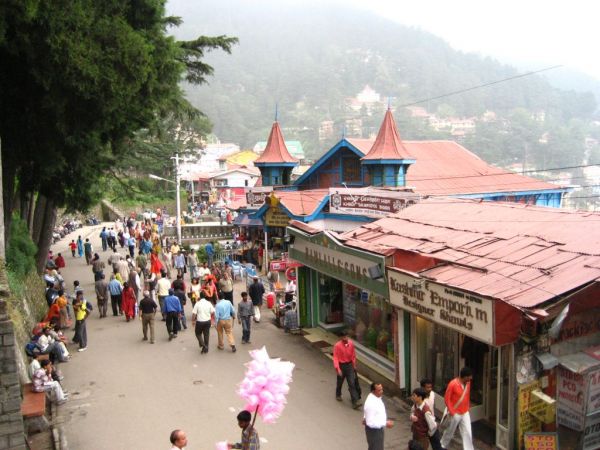
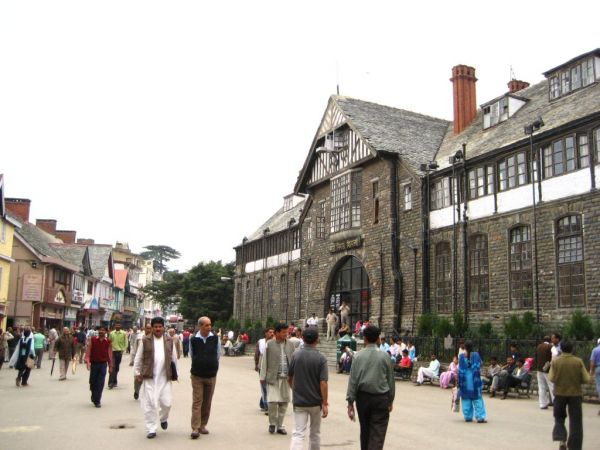
The Jakhu temple at the top of the town is dedicated to Hanuman, the monkey God. And its associates swarm around the temple. Their aggression keeps us at a distance.
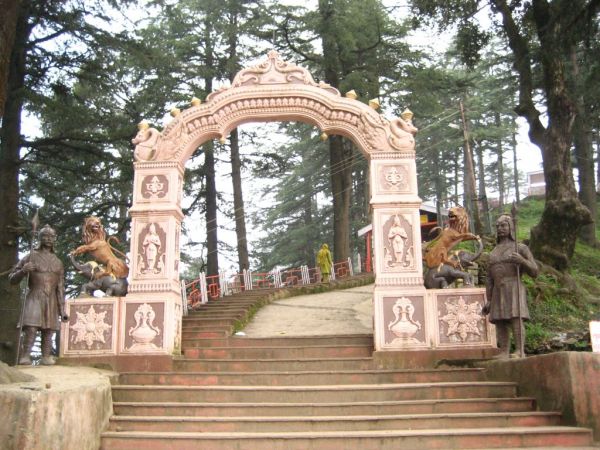
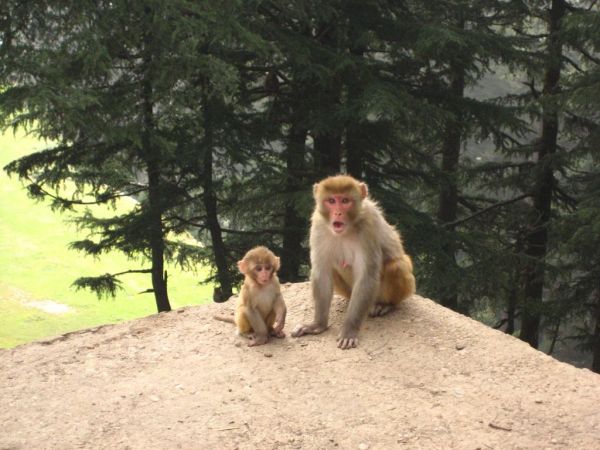
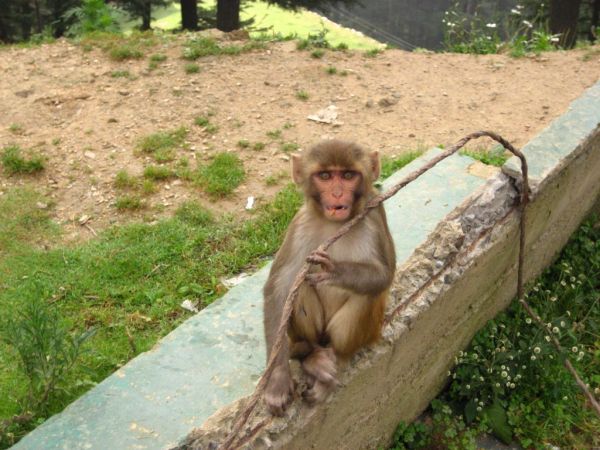
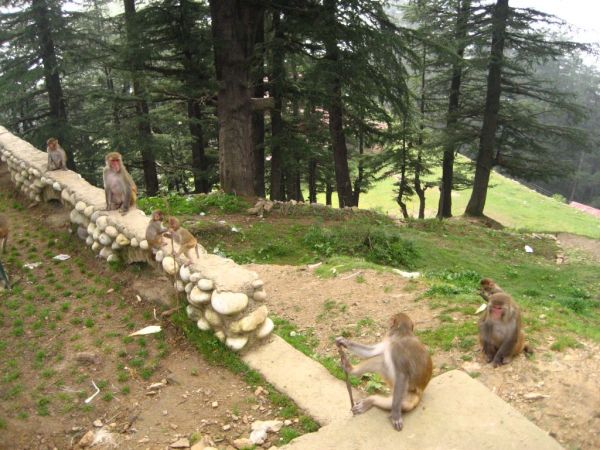
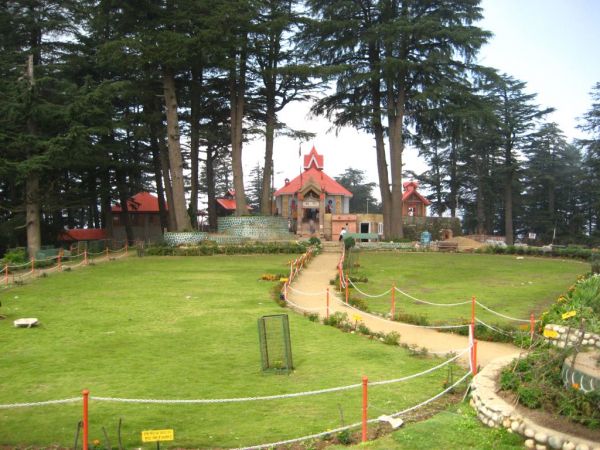

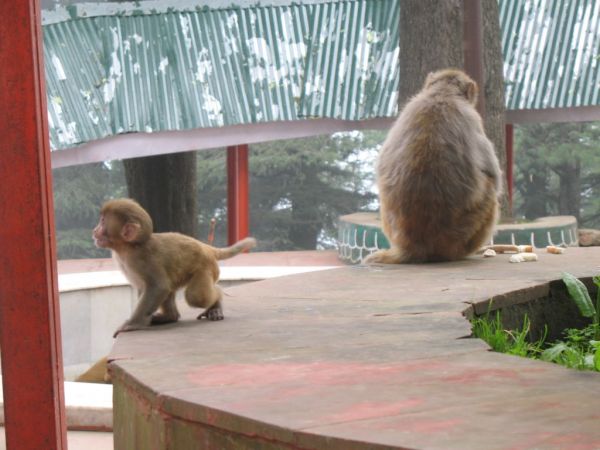
We walk down to the pedestrian way of the Mall where we book a 10-day trip combining jeep + trek in the east of the Himachal Pradesh. We didn't really decided our route yet but the desire to go out of Delhi. We entrust a part of our trip to this small travel agency. No precise information about the journey, and no desire to know more for today. From tomorrow onwards, the pleasure of the discovery. The genuine one.
Saturday 23 June 2007
the transsiberian experience
By dorian on Saturday 23 June 2007, 15:36 - RTW-Russia
There are trips which leave marks on who lived them, there are trips we'd like them to last and for which the word "the end" comes too fast, there are trips which backs up your wish to discover the world an to meet its people. The transsiberian expedition is forged with that. I write down these few words to make share it and above all, to plunge back into it.
77 hours of train, about 30 stops which hardly last a few minutes, 5185 kilometers covered, a few Russian-sounded cities such as Yekaterinburg, Omsk, Novossibirsk, Krasnoyarsk, Irkutsk. All these arguments would make a bad impression on a touristic brochure and wouldn't make dream an exotic place-addicted traveller. However, it's this train I get on the 18 of june at 23h25, platform 3, carriage 7, couchette n°17.



On the platform, I'm looking for foreign backpackers, I meet Tom and Mark, 2 deutch cousins who went far away from the old continent for 10 months. Checking our tickets, we see we're in the same carriage, here is a good news. We load our rucksacks onto the shoulders and approach the carriage entrance. Several people wait for the inspector authorizes them to get on the train. Peering the faces, we notice three quarters of the travellers of this carriage are european. As well as us, you have to add, Henrik and Valérie, Deutch brother and sister left to rest for 6 weeks, 2 finnish girls, 2 swedish boys Gustav and Jonas, Hugh moving away from his native Great Britain for a few months and Beckie, an intrepid English girl who, after discovering the oriental Asia, will go back through Pakistan and Iran following the silk road.
Contrary to a classic train or plane trip where everybody stays silent reading, listening to music or sleeping, we know we're going to spend a good deal of time together. The shyness is packed at the bottom of the bag and each one makes others' acquaintance. As far as I'm concerned, I've the thirst for talking after the silent week I spent between Saint-Petersburg and Moscow.
Each compartment of this second-class carriage is formed by 4 couchettes. I share mine with a Russian woman, the 2 top ones will stay vacant all along the journey. The communication is limited since she speaks neither English nor French, and I don't speak Russian. I spend a lot of time talking with my new friends and topics aren't missing. We "rebuild" Europe and the world, we compare our cultures and our itineraries, we set out our travel experiences, We chat about a lot of different topics as we were old friends and we laugh a lot.
We count the hours before the next stop always repeating to Nathalia, responsible of our carriage : "zdyess Irkutsk?" ( "here we are in Irkutsk ?" ). She always replies "Nyet". On the platform, travelling merchants hurry as soon as we get off the train. They offer us dishes, fruits, sweets, and the competition between them is hearty. A few shops complete the scene with a bigger choice of food, instant chinese noodles, chocolate, yoghurts, biscuits. Chinese noodles is a big hit and the basic food of our trip.









Except taking a shower because there aren't any cabins in the carrriages, we "live" in the transsiberian train. And it would be a real pity to make sacrifices when we know we can get on this type of train for 7 days (149h) to link Moscow to Vladivostok, on the shore of the Japan sea. With its 9289km, here is the longest railway track in the world.
Its birth goes back to 1891 when Alexander III approved the idea of a transsiberian line in order to connect numerous remote areas and to link the faraway Orient to the West. The work was divided into 7 areas and started simultaneously. In exchange for colossal work, the first links were put into operation in 1900. The transsiberian train was introduced the same year during the international exhibition of Paris. Since this date, the line was completed by a lot of ramifications and by its electrification.
In spite of the slowness of the train, time goes by fast on board. The kilometers increase and the landscapes pass by. At the sunrise of the 4th day, the train slows down and stops for the last time. The cyrillic-written sign of Irkutsk appears through the window. It's time for the painful goodbye but the trip goes on. We hope a good luck to each other wishing to meet up. And each one scatters into the crowd that has come to welcome his travellers.

The Transsiberian is an incredible adventure and before all a human experience. The fact of living together in a close space for these numerous hours intensified the relationship and increased the emotions, but above all, it showed me how much I'm keen on travelling and why I'm here. Bag on the back, full-charged batteries and a large smile on my face, I go again for the next episode of my trip.





